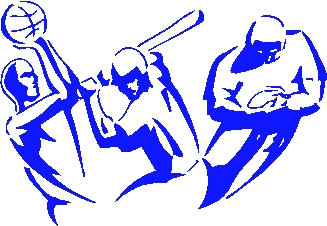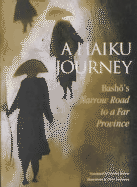 It’s the second season for last year’s MVPoetry volume Baseball Haiku (Cor van den Heuvel and Nanae Tamura, eds., W.W. Norton Press, 2007). The book contains over 200 of the best haiku written about baseball, by 44 poets (both American and Japanese). In a starred review at its release, Library Journal said:
It’s the second season for last year’s MVPoetry volume Baseball Haiku (Cor van den Heuvel and Nanae Tamura, eds., W.W. Norton Press, 2007). The book contains over 200 of the best haiku written about baseball, by 44 poets (both American and Japanese). In a starred review at its release, Library Journal said:
“Not one of those parody collections, this is a gathering of elegantly observed moments capturing the interplay between baseball and the other seasons . . . This collection will inspire some ball fans to be poets and some poets to be ballplayers.”
That reviewer was correct. This past year, I’ve often used the book as a gift for relatives and friends who love baseball, but were not yet haiku fans. They have been consistently pleased. Learn more about the book, and read or hear some of the poems, but checking out the segment of National Public Radio’s All Thing’s Considered titled “Spring Signals the Return of Baseball (Haiku)” (Debbie Elliott, March 31, 2007; Listen).
 If you’d like to see or re-read more samples, f/k/a has frequently shared poems from Baseball Haiku written by our Honored Guest poets — e.g., here, there, and here. And see our post “npr spotlights Baseball Haiku” (March 31, 207)
If you’d like to see or re-read more samples, f/k/a has frequently shared poems from Baseball Haiku written by our Honored Guest poets — e.g., here, there, and here. And see our post “npr spotlights Baseball Haiku” (March 31, 207)
What I wanted to tell you today is that Baseball Haiku has continued to get favorable attention this season. In addition to a review last Sunday in Poet’s Corner (Washington Post Book Review section, May 25, 2008), Sheila Lennon — “features & interactive producer of projo.com, the Web site of The Providence (R.I.) Journal” — featured the book this morning, in a Subterranean Homepage News weblog posting titled “Try your hand at baseball haiku” (May 28, 2008).
update (June 5, 2008): I discovered another favorable article on Baseball Haiku. It is the Japan Times review by David Burleigh, “Who says there’s no poetry in a game?” (May 11, 2008).
 Meanwhile, haiku poet Curtis Dunlap reminded us over the weekend, at his Tobacco Road weblog, that Baseball Haiku will be featured at the Chautauqua Institution, on June 26, 2008, at 3:30 P.M. At the Chautauqua Roundtable, editor-poet Cor van den Heuvel, will be joined by two of the largest contributors to Baseball Haiku — “our” Ed Markowski, and Al Pizzarelli. After Cor discusses haiku, and baseball, all three will read their baseball haiku and senryu, and then answer questions.
Meanwhile, haiku poet Curtis Dunlap reminded us over the weekend, at his Tobacco Road weblog, that Baseball Haiku will be featured at the Chautauqua Institution, on June 26, 2008, at 3:30 P.M. At the Chautauqua Roundtable, editor-poet Cor van den Heuvel, will be joined by two of the largest contributors to Baseball Haiku — “our” Ed Markowski, and Al Pizzarelli. After Cor discusses haiku, and baseball, all three will read their baseball haiku and senryu, and then answer questions.
We told you about the Chautauqua Roundtable event last November. But, it’s now only four weeks away, and the f/k/a Gang — which plans to be there, in the lovely Finger Lakes Region of upstate New York, on June 26 — would love to see a few of our readers and friends attend. The Chautauqua theme that week is Sport in America. Click that link to see the full schedule for week #1 of the Chautauqua season. Here’s how the week is described at the CI website:
• Week 1 June 21-28 – Sport in America
Roger Goodell, long-time Chautauquan and commissioner of the National Football League, will be among the featured lecturers in Week One. Sport looms large in the American culture, whether from an economic perspective or through the lens of its impact on our lifestyles and customs. Fun, competitive, entertaining? Yes. But big business too. Some estimates tag the sports business industry in the U.S. at over $300 billion annually. From youth and amateur athletics to college sports to the pros, we will examine the economics and the impact of sports on our cities, our youth, education, and culture. We will look at Title 9, the influence of television and escalating salaries, and the future of Olympic sports. And we will explore whether the interest of the general fan has been eclipsed by big money.
update (June 29, 2008): Read about the event in “Chautauqua grand slam” (June 28, 2008) .
 Here are a few of the poems from Baseball Haiku that we posted last March, in a post about multitasking and distractions:
Here are a few of the poems from Baseball Haiku that we posted last March, in a post about multitasking and distractions:
bases loaded
the rookie pitcher
blows a bubble
late innings 
the shortstop backpedals
into fireflies
…………………………by ed markowski from Baseball Haiku (2007) “bases loaded” – orig. pub. Haiku Sun #10 (2004)
geese flying north
the pitcher stops his windup
to watch
hot day 
listening to the ball game
while washing the car
…………………………. by Cor van den Heuvel – Baseball Haiku (2007), orig pub. Play Ball (Red Moon Press 1999)
 Speaking of distractions and non sequiturs: Tomorrow, May 29, 2008, marks the 5th Anniversary of our very first substantive posting at this website.
Speaking of distractions and non sequiturs: Tomorrow, May 29, 2008, marks the 5th Anniversary of our very first substantive posting at this website.
Back then, there was no haiku at f/k/a, which was originally known as ethicalEsq — see our URL for proof. That post dealt with the nation’s inadequate system of lawyer discipline (“D for Discipline“). The next few had to do with excessive lawyer fees. We’ve spread our topical wings since then.
 Since wood is the traditional gift for one’s 5th Anniversary, please feel free to leave us haiku or senryu that include that subject (no woody jokes, please, this is usually a family website).
Since wood is the traditional gift for one’s 5th Anniversary, please feel free to leave us haiku or senryu that include that subject (no woody jokes, please, this is usually a family website).
last day of school . . .
the crack of a bat
through an open window
…………by Randy Brooks – Baseball Haiku (2007)
tied in the ninth
pitcher and batter
cross themselves
…………. by dagosan
 John Barlow of Snapshot Press has announced the winners in this year’s Haiku Calendar Competition. Each of the 12 winning poems will be featured in the 2009 Haiku Calendar from Snapshot. In addition, 40 other “runner-up” poems will be included in the calendar, which contains the work of 33 poets from around the world. The Haiku Calendar 2009 can be ordered online or by mail order.
John Barlow of Snapshot Press has announced the winners in this year’s Haiku Calendar Competition. Each of the 12 winning poems will be featured in the 2009 Haiku Calendar from Snapshot. In addition, 40 other “runner-up” poems will be included in the calendar, which contains the work of 33 poets from around the world. The Haiku Calendar 2009 can be ordered online or by mail order.As usual, several of our Honored Guest poets were selected for this year’s calendar. f/k/a‘s Winners include: John Stevenson (January) and Carolyn Hall (February). Runner-up poems were penned by Roberta Beary, David Giacalone, Carolyn Hall (two more), and Peggy Willis Lyles.
 . . Baseball Haiku at Chautauqua, June 26, 2008 . .
. . Baseball Haiku at Chautauqua, June 26, 2008 . . 
 More than 150 fans of baseball and haiku gathered at the Chautauqua Institution’s Hall of Philosophy, on Thursday afternoon, June 26, for a Roundtable on Baseball Haiku, as part of CI’s “
More than 150 fans of baseball and haiku gathered at the Chautauqua Institution’s Hall of Philosophy, on Thursday afternoon, June 26, for a Roundtable on Baseball Haiku, as part of CI’s “



 Ed contributed over twenty of the 200 “best haiku ever written about the sport” in Baseball Haiku. But, Ed plays — or once played — and fanatically watches quite a few other sports (especially Detroit’s pro teams), and often treats them with his poetic touch. We hope the American Sports haiku collection will demonstrate once and for all that Ed Markowski is not just a one-sport poet. Of course, frequent readers of this weblog (or the top haiku journals and anthologies) did not need convincing. [You can access hundreds of Ed’s haiku and senryu from his f/k/a
Ed contributed over twenty of the 200 “best haiku ever written about the sport” in Baseball Haiku. But, Ed plays — or once played — and fanatically watches quite a few other sports (especially Detroit’s pro teams), and often treats them with his poetic touch. We hope the American Sports haiku collection will demonstrate once and for all that Ed Markowski is not just a one-sport poet. Of course, frequent readers of this weblog (or the top haiku journals and anthologies) did not need convincing. [You can access hundreds of Ed’s haiku and senryu from his f/k/a 


 Yesterday,
Yesterday,  Tony Pupello and f/k/a Honored Guest
Tony Pupello and f/k/a Honored Guest  We also want to remind you about the website
We also want to remind you about the website  You will find more poems by kids at Two Dragonflies — along with inspiration and instruction to help nurture more young haijin. Also, every day, you can click on the HSA
You will find more poems by kids at Two Dragonflies — along with inspiration and instruction to help nurture more young haijin. Also, every day, you can click on the HSA  Meanwhile, haiku poet Curtis Dunlap reminded us over the weekend, at his
Meanwhile, haiku poet Curtis Dunlap reminded us over the weekend, at his 



 The
The  We’re very pleased to tell you that one of the two Finalists for the William Carlos Williams Award — which was given to “
We’re very pleased to tell you that one of the two Finalists for the William Carlos Williams Award — which was given to “ “If slam poets & visual poets go around thinking that nobody takes their genres seriously as literature, haiku poetry has been off the map altogether – a genuinely popular literary art form that receives no attention whatsoever from what Charles Bernstein would call Official Verse Culture unless it is for a new translation of one of the classics, or work by a poet, such as Anselm Hollo, already widely known and respected for writing in other forms. The whole idea of all these contests – not unlike slam competitions – is to create its own alternative institutional universe.”
“If slam poets & visual poets go around thinking that nobody takes their genres seriously as literature, haiku poetry has been off the map altogether – a genuinely popular literary art form that receives no attention whatsoever from what Charles Bernstein would call Official Verse Culture unless it is for a new translation of one of the classics, or work by a poet, such as Anselm Hollo, already widely known and respected for writing in other forms. The whole idea of all these contests – not unlike slam competitions – is to create its own alternative institutional universe.” Silliman then goes on with great insight describing Roberta’s The Unworn Necklace. I hope you’ll read his entire
Silliman then goes on with great insight describing Roberta’s The Unworn Necklace. I hope you’ll read his entire  If Silliman and PSA have whet your Beary appetite, check out our
If Silliman and PSA have whet your Beary appetite, check out our  afterthoughts (April 23, 2008): The PSA recognition for The Unworn Necklace is a wonderful development. I am a little worried, however, that the haiku community might conclude the way to be recognized by “mainstream poetry” critics and readers is to produce another “narrative cycle that has the weight and emotional force of a novel” — rather than collections of excellent haiku by an individual poet. The result, I fear, would be (in the hands of less talented poets or editors) — as Ed Markowski suggested to me yesterday — tediously long “haiku sequences” or a one-haijin “anthology” covering a particular theme. A collection of haiku and senryu can surely be much more than the sum of each poem, but I fear we are devaluing the individual poem and distorting the genre if we ask a collection to have a novel-like over-arching impact and theme in order to be serious literary poetry. What do you think?
afterthoughts (April 23, 2008): The PSA recognition for The Unworn Necklace is a wonderful development. I am a little worried, however, that the haiku community might conclude the way to be recognized by “mainstream poetry” critics and readers is to produce another “narrative cycle that has the weight and emotional force of a novel” — rather than collections of excellent haiku by an individual poet. The result, I fear, would be (in the hands of less talented poets or editors) — as Ed Markowski suggested to me yesterday — tediously long “haiku sequences” or a one-haijin “anthology” covering a particular theme. A collection of haiku and senryu can surely be much more than the sum of each poem, but I fear we are devaluing the individual poem and distorting the genre if we ask a collection to have a novel-like over-arching impact and theme in order to be serious literary poetry. What do you think? afterwords (April 24, 2008): My cranky alter ego
afterwords (April 24, 2008): My cranky alter ego  The Weiss Awards are sponsored annually by the
The Weiss Awards are sponsored annually by the  I‘m sorry to say that one of the Weiss “winners” has garnered a spot on our
I‘m sorry to say that one of the Weiss “winners” has garnered a spot on our 
 Congratulations to all the winners!
Congratulations to all the winners! The f/k/a Gang would prefer to be idle today, Saturday March 15, 2008. However, we’ve noticed that the term “
The f/k/a Gang would prefer to be idle today, Saturday March 15, 2008. However, we’ve noticed that the term “
 The premiere print edition of the
The premiere print edition of the  The first print issue of MagnaPoets has a gorgeous, glossy
The first print issue of MagnaPoets has a gorgeous, glossy 
 First Runner-up:
First Runner-up:
 Click here to see the
Click here to see the 
